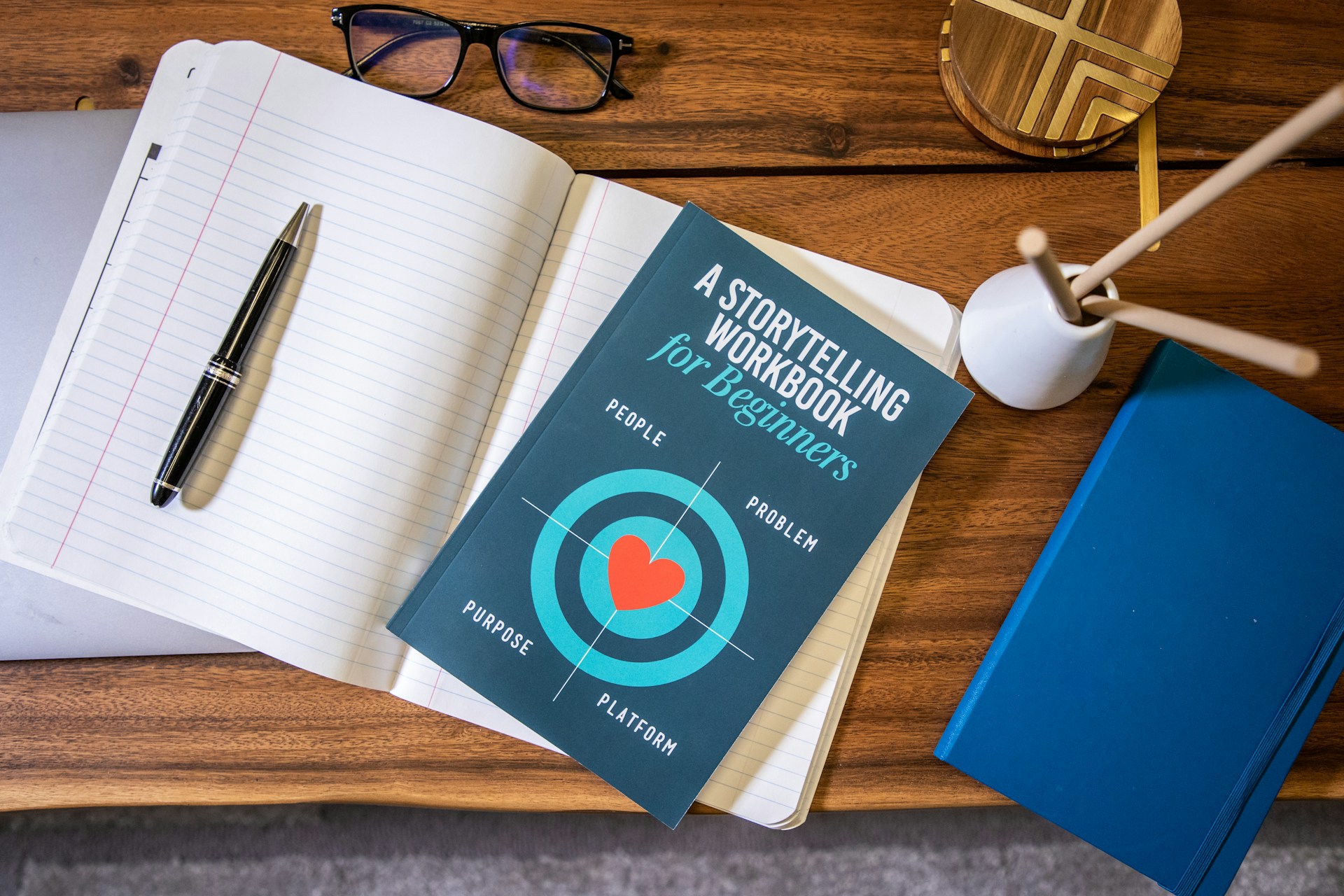
In a world overflowing with data, statistics, and quick facts, the power of storytelling shines brighter than ever. Facts can inform, but they rarely inspire. Stories, on the other hand, capture attention, stir emotions, and stay in memory long after the details fade. This is because our brains are wired to process information in narrative form.
When you hear that “65% of people are visual learners,” you might nod and move on. But if you hear the story of a struggling student who suddenly excelled after using visual study techniques, you remember it. That’s the true power of storytelling — it transforms abstract numbers into relatable human experiences.
From ancient cave paintings to today’s digital content, stories have been humanity’s favorite way to share knowledge and meaning. They don’t just tell us what happened; they show us why it matters.
How the Power of Storytelling Builds Trust and Emotional Connection
The power of storytelling goes beyond entertainment — it creates deep emotional connections. Readers want more than information; they crave authenticity, empathy, and shared meaning. A story that mirrors their struggles or dreams builds trust instantly.
Think of major brands like Apple, Nike, or Airbnb. They don’t just market products; they tell stories of creativity, determination, and belonging. These narratives build an emotional bridge that turns one-time buyers into lifelong fans.
The same applies to personal writing. Sharing your experiences, challenges, or even failures allows readers to see the human side of your content. Vulnerability, far from being a weakness, is a magnet for trust. When readers feel that you “get” them, they engage more deeply with your message.
And there’s another hidden benefit: emotions drive action. Readers who are emotionally touched by your story are far more likely to comment, share, or make a purchase. This is why the power of storytelling isn’t just a nice-to-have — it’s essential for influence.
Practical Ways to Harness the Power of Storytelling
Learning to tell great stories doesn’t require being a natural-born storyteller. It’s a skill you can sharpen with practice. Here are proven ways to master the power of storytelling in your content:
1. Start With a Hook
Your opening lines matter more than you think. Begin with a surprising fact, a vivid scene, or a provocative question. A good hook compels readers to keep going.
2. Follow a Story Arc
Every engaging story has structure: introduction, rising action, climax, and resolution. Organizing your content this way ensures a natural flow that keeps readers engaged.
3. Keep It Relatable
Your audience should see themselves in your story. Even if you’re writing about a complex idea, anchor it with relatable examples or human characters.
4. Stir Emotions
Emotion is the heartbeat of storytelling. Ask yourself: do you want readers to feel inspired, curious, or empathetic? Craft your words to evoke that emotion.
5. Add Sensory Details
Don’t just tell readers what happened; show them. Use sight, sound, taste, and touch to paint vivid mental pictures. Instead of “It was a bad day,” try: “The rain hammered on the window, and the inbox count hit 127 unanswered emails.”
6. Link Stories to Purpose
Every story must tie back to your goal. Are you trying to teach a lesson, persuade a customer, or inspire action? The power of storytelling is strongest when the narrative connects directly to your purpose.
7. Blend Facts With Stories
Facts strengthen credibility, while stories bring them to life. The best content uses both. For example, combine a research statistic with a real-life case study to double the impact.
By practicing these techniques, you’ll notice your writing becomes not only more engaging but also more persuasive.
The Power of Storytelling in Marketing and SEO
The power of storytelling isn’t limited to novels or speeches; it’s a game-changer in marketing and SEO. Search engines are getting smarter, prioritizing content that keeps readers engaged. And nothing engages more than a good story.
When your content captivates readers, several SEO benefits follow:
- Longer dwell time: Readers stay longer, signaling to search engines that your page has value.
- Lower bounce rates: Well-told stories encourage readers to keep scrolling instead of leaving quickly.
- Higher shares: People love sharing stories that move them. This creates organic backlinks and improves visibility.
- Stronger brand loyalty: Readers who emotionally connect with your story return for more.
For example, a company selling eco-friendly products could simply list features like “biodegradable, durable, sustainable.” But if they tell the story of a family reducing waste and protecting the planet for future generations, the audience feels personally invested. That’s how the power of storytelling turns marketing into meaning.
The Lasting Impact of the Power of Storytelling
The most enduring effect of the power of storytelling is memory. Readers may forget the fine details of your blog post, but they’ll remember how your story made them feel. And feelings drive loyalty.
Stories are also future-proof. Platforms, algorithms, and trends change, but the human love for narrative never will. By prioritizing stories in your content, you invest in a timeless strategy that adapts across every medium — blog posts, videos, podcasts, and even social media snippets.
Moreover, storytelling creates ripple effects. Readers touched by your story are more likely to retell it, spreading your message organically. One powerful story can reach further than dozens of generic articles.
This makes the power of storytelling not only an artistic skill but also a long-term business advantage.
The power of storytelling is the ultimate tool for writers, marketers, and creators who want to capture attention and inspire action. Facts may educate, but stories resonate. They turn passive readers into active participants, building trust, connection, and loyalty.
Whether you’re crafting a blog post, a sales pitch, or a personal narrative, remember this: information tells, but stories sell. Mastering the power of storytelling ensures your words are not just read but remembered — and that’s the true measure of captivating content.